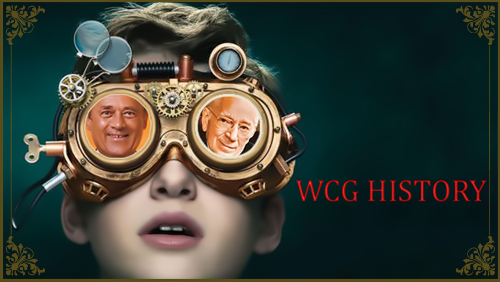Many “searching” people, or so it seems to me, are looking for a religion that does not stand in judgment of others and that does not tell them what to believe. What they are seeking is a religion that has no religious demands, a religion without authority and without condemnation of any type. But there is no such religion!
The primary definition of “religion” is a belief in a superhuman controlling power, i.e. a personal God or gods entitled to obedience and worship. Without this description, the word “religion” has no meaning. If individuals want to be free of the pressures to conform why don’t they simply take hold of that precious freedom to think for themselves while it still exists? Religion, traditionally, is the institution that is said to give safety, peace of mind, and community which is what most postmodern people are seeking. If this is so, then I wonder why there is such misery, even among believers, and evil throughout this world.
The Unitarian-Universalist (UU) fellowships embrace people of all faiths and non-faiths. Their membership includes disgruntled or disheartened Catholics and Protestants, Buddhists and Hindus, agnostics and atheists, pagans and Wiccans, humanists and Taoists, perhaps a few Muslims, etc. They come together without a unifying creed or theological interpretation to which members must subscribe. Attendees, ostensibly, are encouraged to freely and responsibly search for truth and meaning for themselves in their own way.
These fellowships, obviously, are not communities of wholly like-minded individuals. I once attended over a period of a few years a UU fellowship (and still do on occasion if the advertised sermon topic appeals to me). Even though I never signed their membership book, for the most part gathering with the UUs for Sunday services was a pleasant, educational experience. It served as a peaceful transition from orthodoxy as I struggled to come to terms with my growing unbelief. By then I had severed my membership in both the Worldwide Church of God and the Lutheran Church-Missouri Synod.
Eventually and ironically, the UU meetings became too ecumenical for me as I became more familiar with the many different religious viewpoints in that fellowship. I was searching and trying to “pick brains,” but not one person ever gave me objective reasons for their particular belief positions. Even though I met a number of nice people, they seemed somewhat threatened if I questioned how and why they came to adopt their positions. My experience with the UUs was little different from the orthodox church I had left after I started asking pointed questions about its doctrines and creeds.
I did not become an unbeliever because I was angry with any deity or human being, for that matter, nor because my life was filled with disappointment or anguish. My humanistic atheism developed gradually through intensive personal research and study over many years. I began my investigation of religion because I had so many questions about the Bible and what I was taught it means, what others of different denominations say it means, and why a presumably loving, all-knowing god allows evil to perpetuate.
In a recent Gallop poll, 60% percent of Americans say that religion can answer all of today’s problems, while 26% say religion is old-fashioned and out-of-date. I don’t know what the remaining 14% say. Perhaps they include the many people who are looking for a religious or spiritual high without the burden of religious or spiritual baggage. They want to believe in something without objectively investigating their beliefs. They want to be a part of a community that gives them a sense of security but doesn’t require religious doctrine or rules.
As a sometimes-despised atheist, I know that the majority of people, especially in the United States, do not respect my stance. Religionists would much rather have nominal believers or even those who say they’re agnostics in their midst. After all, they might say, there is hope for them.
I respect sincere, nonmilitant adherents of any religious faith even though I disagree with all of them. I do, however, have a hard time with those who want community and meaning from a “spiritual” group but don’t even know the meaning of the word “spiritual.” (Please see my recently published second book, The Homemade Atheist, for an explanation of my feelings on the subject of spirituality).
If you want community without religious attachments, then join a country club, the Rotarians, or a bowling team. But be assured that you can’t be a member in good standing of an established church without at least an outward appearance of conformity to certain rules or commandments of the god or gods which church members say they worship.
Like a TV commercial for a popular cookie once advertised, “If you’re going to eat a cookie, then eat a cookie.” And I say, “If you’re going to believe in god, then believe in god–but know objectively why you do–uncolored by emotion, fear, or bigotry.
